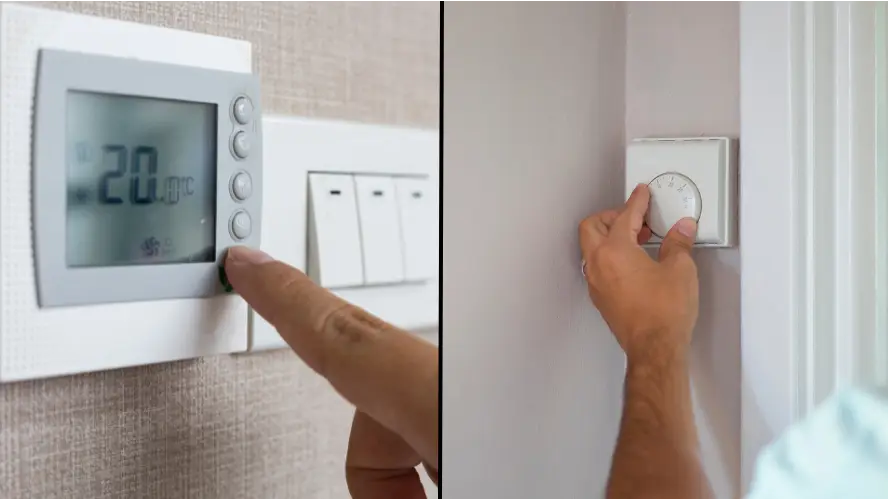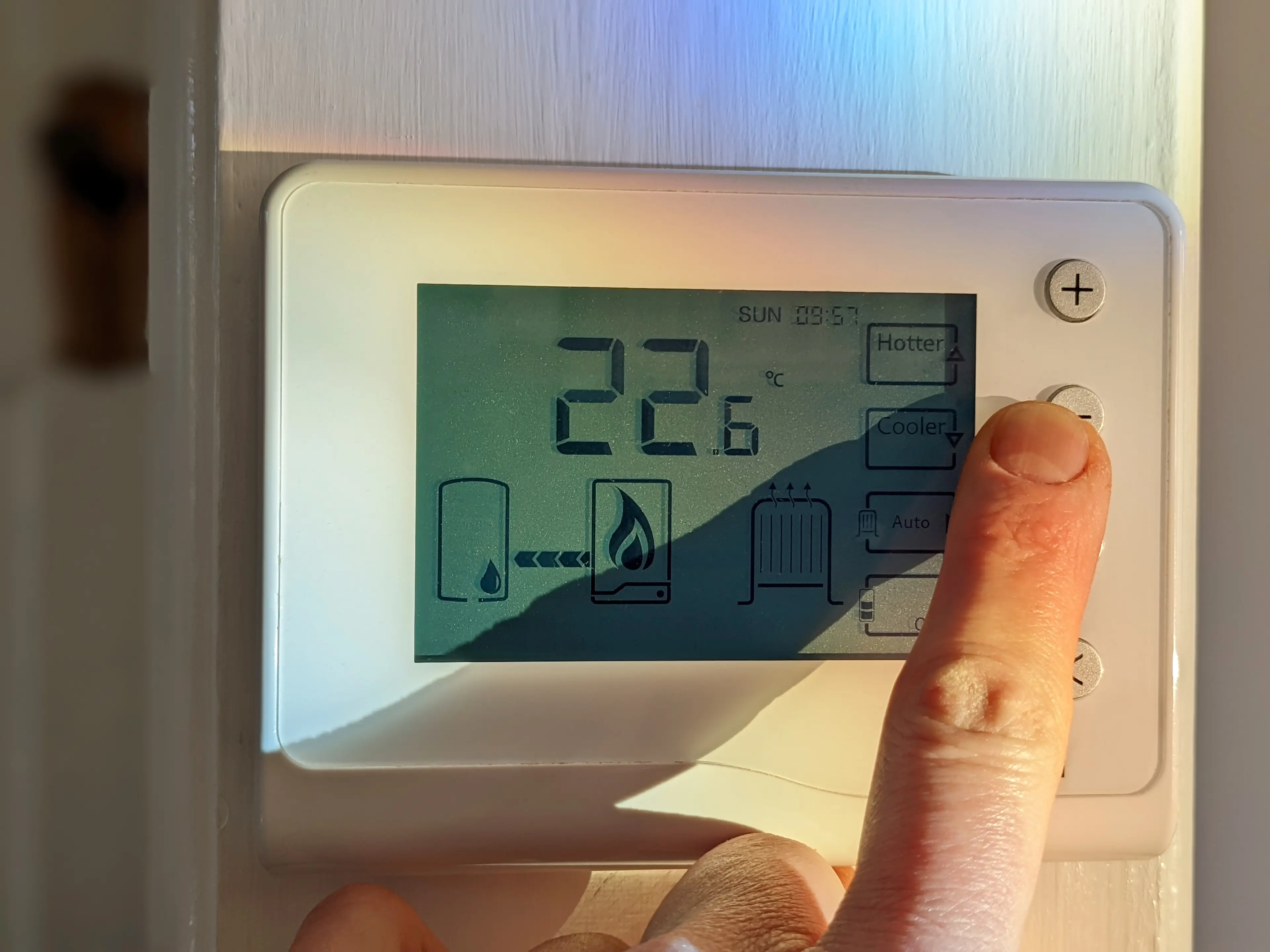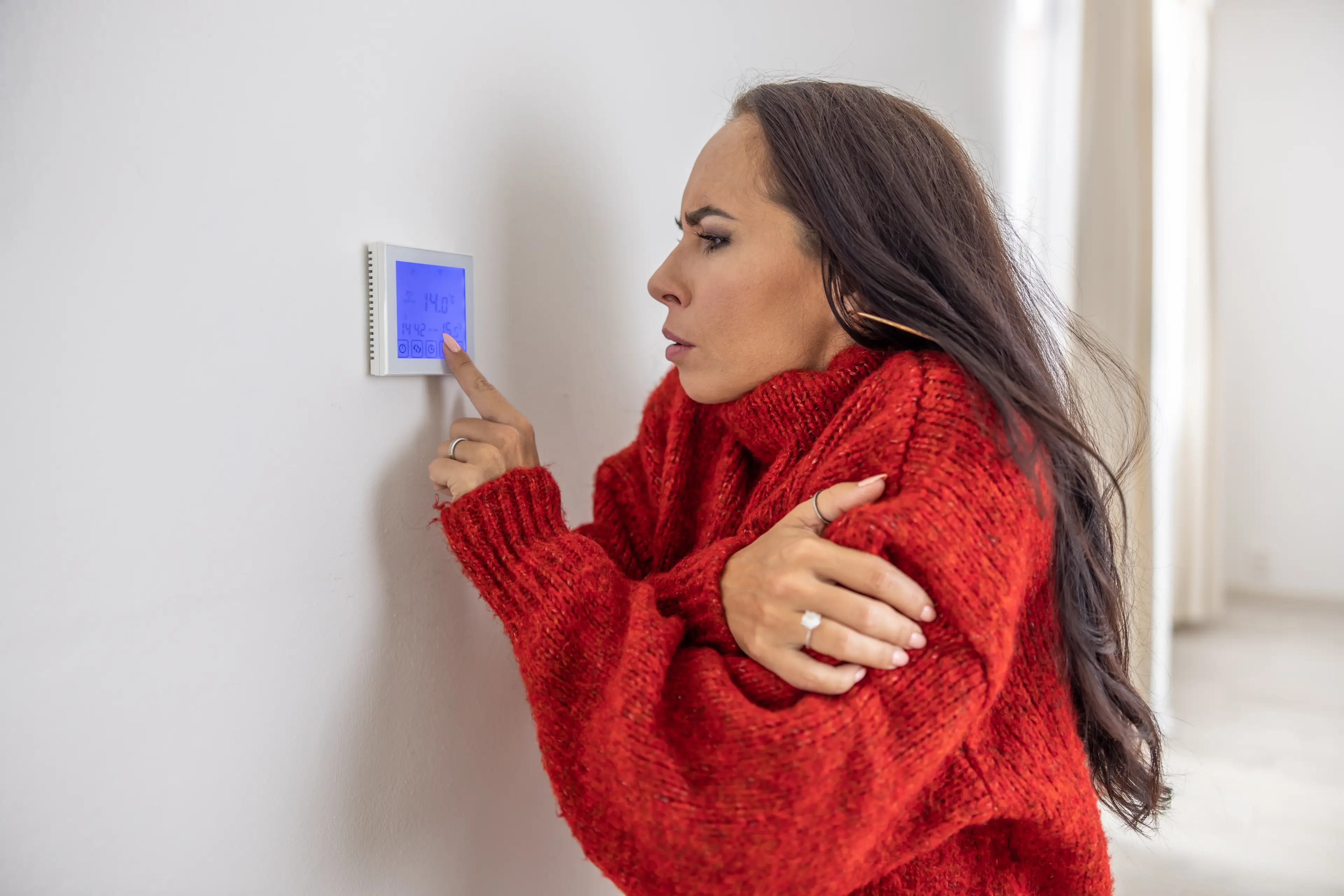
An energy expert has revealed the truth behind the idea that you’re supposed to leave your heating on at a low level all the time during the winter, rather than firing it up and then letting it go off.
As the winter nights draw in, things are starting to turn a lot colder and – this week – wetter.
To paraphrase Game of Thrones, winter is definitely coming.
Advert
With that in mind, we’re all digging out those big coats and pondering whether to slam the heating on of an evening, if you haven’t already.
However, it’s an expensive business, trying to heat your house.
So, any tips on how to save a bit of cash are welcome.
Apparently, we humans enjoy a comfortable temperature that is between 18C and 21C in our houses, although this might be different for others depending on the circumstances.
But, it's also fairly commonly suggested that you should leave your heating on at somewhere below that all the time so that you’re not constantly firing up the heating and consuming more energy.

The logic goes that it is expensive to keep firing the heating up, as using more energy to get the house from a lower temperature to a comfortable one is harder.
So, it seems to follow that keeping it on low and having the impact of heating the house lessened would be the more economical option.
But, there are some problems with that.
First off, you’d have to have the heating on all of the time, even when you’re not in the house, which is daft.
Then, there’s the idea that the level you’d have to have it on isn’t a truly comfortable temperature in the first place, meaning you’ll still be boosting it all the time anyway.
Stephen Hankinson, from Electric Radiators Direct, explained it like this: “Firing up your boiler and the initial stage of heating your home is the most energy-intense, and costly, period of the process.
“That has led some to speculate whether doing away with this and keeping the heating on all day – at lower temperatures – can reduce this cost.
“But – and there are a good few buts – it’s not recommended.
“Having your heating set to a low temperature – say 14o-16o – means it is not set to a level that you are likely to be comfortable in, so you’ll be turning it up at some point and spending more money.
“Plus having your heating on when you're not in the home is a complete waste of money.”
He continued: “You don’t put the oven on when you’re not cooking food, so why would you turn on the appliance designed to keep you warm when you’re not there?”
It’s a fair question.
So, to save energy, here’s some tips he offers.

Don’t heat empty rooms, to start with.
Turn those radiator valves down if you aren’t planning to be in the room.
Turn the overall thermostat down as well, so if it’s set to 22C or 23C, you’re potentially not going to mind if it’s 21C instead.
But, trying to get to that heat might be difficult in bigger houses, so maybe try the lower level first.
Get the heating on a timer, so you only have it on when you really need it, as well.
Finally, heat up yourself, not the space you’re in.
It’s cheaper to boil the kettle than put the heating on, so think about a jumper or a hot water bottle before reaching for the dial.
Things are going to be expensive again this winter, so any extra advice is always welcome.